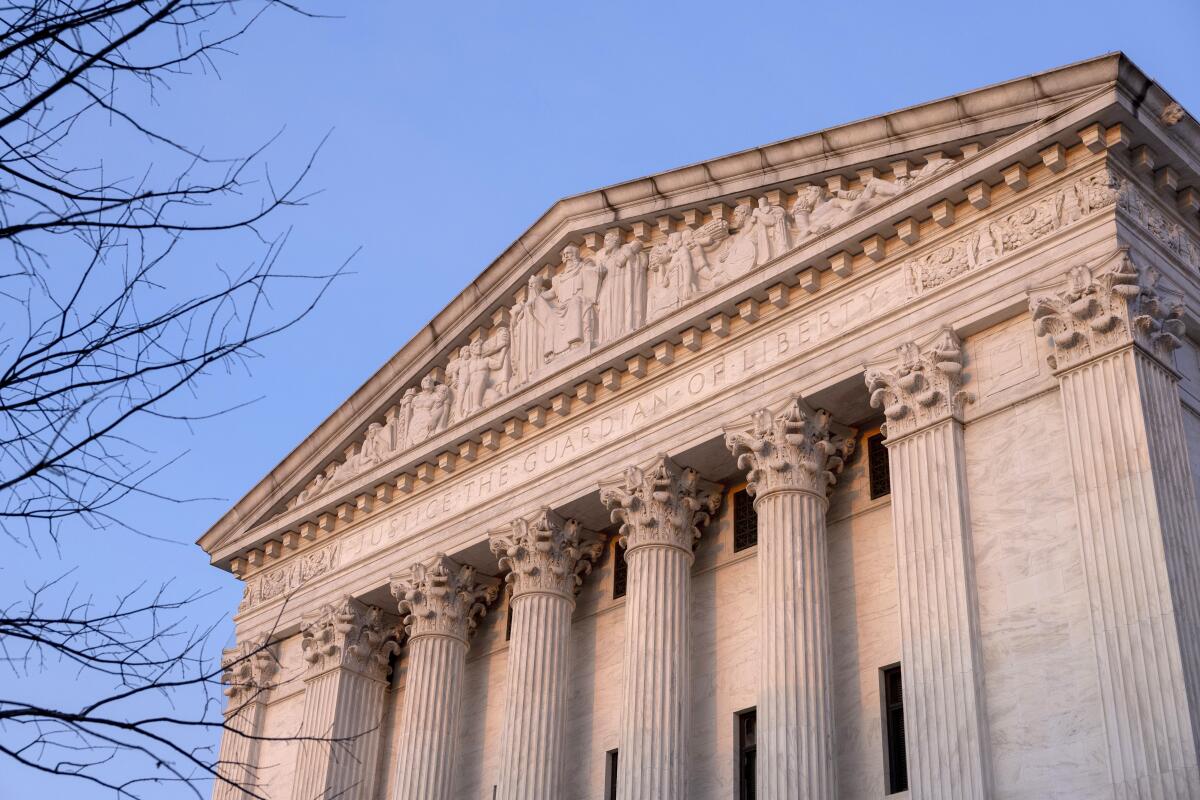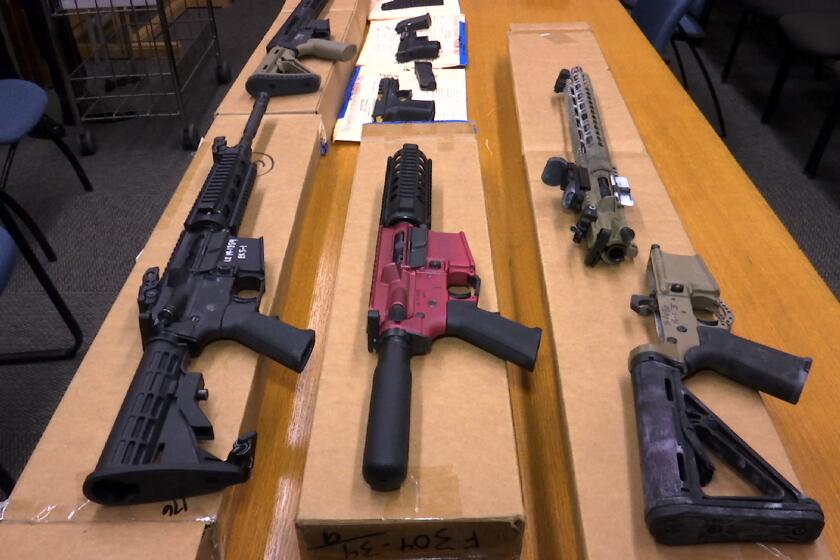Supreme Court will take up the legal fight over ‘ghost guns’, firearms without serial numbers

- Share via
WASHINGTON — The Supreme Court agreed on Monday to take up a Biden administration appeal over the regulation of difficult-to-trace ghost guns that had been struck down by lower courts.
The justices in a 5-4 vote had previously intervened to keep the regulation in effect during the legal fight. Ghost guns, which lack serial numbers, have been turning up at crime scenes with increasing regularity.
The regulation, which took effect in 2022, changed the definition of a firearm under federal law to include unfinished parts, such as the frame of a handgun or the receiver of a long gun, so they can be tracked more easily. Those parts must be licensed and include serial numbers. Manufacturers also must run background checks before a sale, as they do with other commercially made firearms.
The Supreme Court granted an emergency appeal from the Biden administration and revived federal rules forbidding the sale or use of untraceable guns.
The requirement applies regardless of how the firearm was made, meaning it includes ghost guns made from individual parts or kits or by 3-D printers. The rule does not prohibit people from buying a kit or any type of firearm.
The Justice Department had told the court that local law enforcement agencies seized more than 19,000 ghost guns at crime scenes in 2021, a more than tenfold increase in just five years.
U.S. District Judge Reed O’Connor in Fort Worth struck down the rule last year, concluding that it exceeded the Bureau of Alcohol, Tobacco, Firearms and Explosives’ authority. O’Connor wrote that the definition of a firearm in federal law does not cover all the parts of a gun. Congress could change the law, he wrote.
Supreme Court appears to favor upholding a Trump-era rule that outlaws rapid-fire bump stocks on guns that allow a shooter to spray hundreds of bullets per minute.
A panel of the U.S. 5th Circuit Court of Appeals made up of three appointees of then-President Trump largely upheld O’Connor’s ruling.
The Supreme Court allowed the regulation to remain in effect while the lawsuit continues. Chief Justice John G. Roberts Jr. and Justice Amy Coney Barrett joined with the court’s three liberal members to form the majority. Justices Samuel A. Alito Jr., Neil M. Gorsuch, Brett M. Kavanaugh and Clarence Thomas would have kept the regulation on hold during the appeals process.
Barrett, Gorsuch and Kavanaugh were appointed by Trump.
Arguments won’t take place before the fall.
Sherman writes for the Associated Press.
More to Read
Sign up for Essential California
The most important California stories and recommendations in your inbox every morning.
You may occasionally receive promotional content from the Los Angeles Times.












